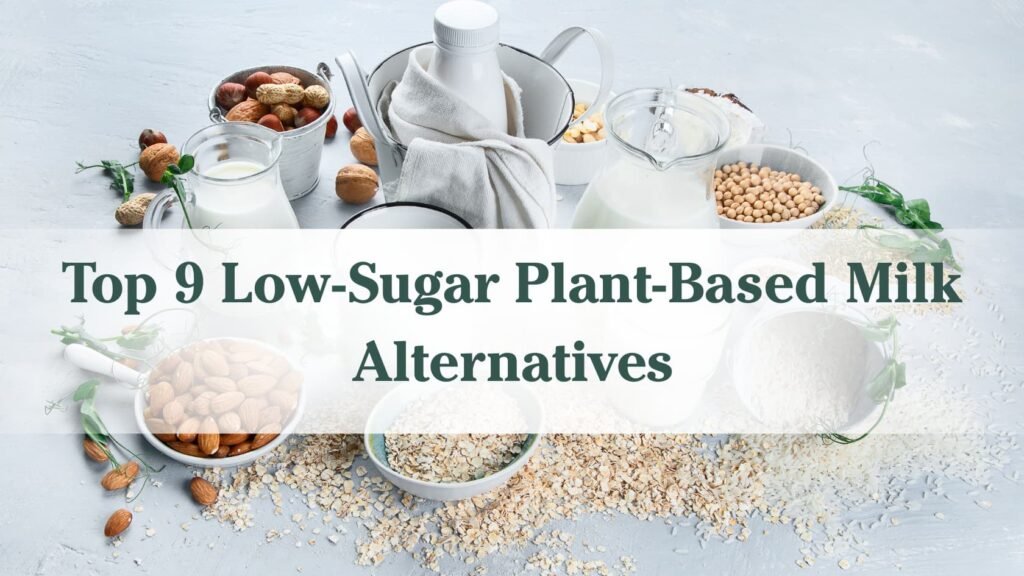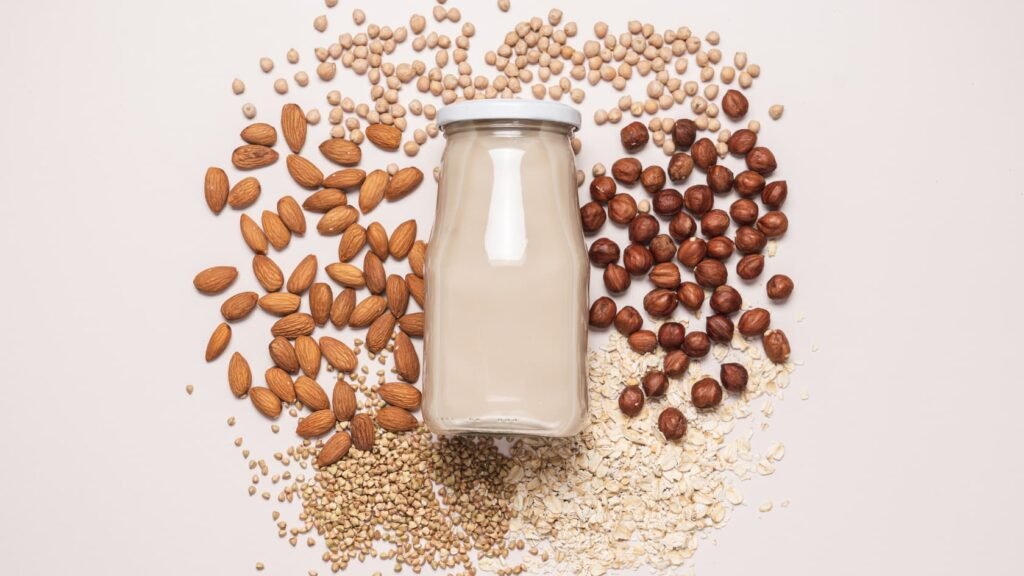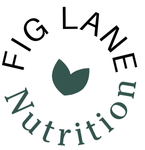Almond, oat, soy, rice, hemp, pistachio—at this point, is there anything we can’t milk?

The plant-based milk aisle is packed with options, each boasting its own texture, flavor, and nutritional profile. Whether you’re dairy-free by choice or necessity, or just looking to switch things up, there’s something for everyone. But with so many choices, which ones actually deliver when it comes to low sugar content and overall nutrition?
As a dietitian, I set out to find the best low sugar plant-based milk alternatives on the market—milks that strike the sweet spot between cost, taste, and nutritional value.
Sure, making plant-based milks at home is a great option for controlling ingredients, but let’s be honest—it can be time-consuming, and the texture doesn’t always come out silky smooth. Store-bought varieties offer convenience and better consistency, but some can cost nearly $6 for less than a quart. That’s enough to make anyone cry over spilled milk.
Why Go Low Sugar?
There are plenty of reasons people look for lower sugar foods—supporting better energy levels, reducing blood sugar spikes with diabetes, managing weight, or simply avoiding excess sweetness. But when it comes to health, it’s important to distinguish naturally occurring sugars from added sugars.

Added sugars are any sugars added to a product during production, such as cane sugar, honey, agave, maple syrup, or fruit juice concentrates [1]. These increase the sugar content beyond what would naturally occur in the ingredients. In contrast, naturally occurring sugars are those found naturally in whole foods, such as the lactose in milk or the fructose in fruit [1].
Continued research is needed however, there is association with added sugar consumption poor diet quality and heart disease in the presence of excess calorie intake [2,3]. Most people get added sugar from sugar sweetened beverages [4].
What is Low Sugar?
To define “low-sugar” for this list, I’m looking at both added and total sugar:
Low in total sugar: While there’s no official Daily Value for total sugar, I’m also considering plant-based milks with less than 5 grams of total sugar per serving (this includes both added and naturally occurring sugars).
Low in added sugar: According to FDA guidelines, a product is considered “low” in a nutrient if it contains less than 5% of the Daily Value (DV) per serving [1]. For added sugar, the DV is 50 grams per day, so anything with less than 2.5 grams of added sugar per serving qualifies as low added sugar.
Low-Sugar Plant-Based Milk Alternatives Comparison:
Here’s a quick comparison of 9 low-sugar plant-based milks, ranked by sugar content, affordability, protein content, and nutrient fortification. Scroll down for a deeper dive into each one, preferred uses, and description of taste and texture that influenced my decision.
| Brand | Sugar (Total grams/Added grams) | Cost per Cup | Protein (grams) | Nutrient Fortification | Other Comments |
|---|---|---|---|---|---|
| Silk Organic Unsweetened Soymilk | <1/0 | $0.50 | 7 | Yes | Soy protein, Contains soy |
| Ripple Unsweetened Original Plant-Based Milk | 0/0 | $0.67 | 8 | Yes | Pea Protein |
| Ripple Kids Unsweetened Original Plant-based Milk | 0/0 | $0.80 | 8 | Yes | Pea protein |
| Almond Breeze Unsweetened Original Almondmilk | 0/0 | $0.46 | 1 | Yes | Contains nuts |
| Planet Oat Unsweetened Original Oatmilk | 0/0 | $0.52 | 1 | Yes | Oats |
| Oatly Chilled Oatmilk Unsweetened | 0/0 | $0.62 | 1 | Yes | Oats |
| Califia Farms Unsweetened Almondmilk | 0/0 | $0.67 | 1 | Yes | Contains nuts |
Califia Farms Organic Unsweetened Almondmilk | 0/0 | $1.04 | 2 | No | Contains nuts |
| Milkadamia Unsweetened Macadamia Plant Milk | 0/0 | $1.12 | 1 | Yes | Shelf-stable, Contains nuts |
Aside from having to be low-sugar plant-base milk alternatives, products chosen had to be available in more than one store, no more than 2 products from an individual brand were included, and no flavored varieties were included. All products were compared using the price at Target or Walmart and price and nutrient content were evaluated on 4/14/2024. All products were purchased by myself and I did not receive any funding from these companies prior to the making of this post.
Why trust my opinion?
I stopped drinking milk about eight years ago, not because I didn’t like the taste (I actually loved it), but out of necessity. I developed a milk protein allergy that forced me to say goodbye to dairy.
Before that, I was a full-on milk drinker. I came from a family that went through about a gallon a day. And when I was at home, milk was my go-to beverage—it wasn’t unusual for me to choose it over water or juice.
Since then, I’ve tried just about every plant-based milk alternative on the market. As a dietitian and someone who genuinely enjoys the taste and feel of milk, I’ve become pretty picky about finding dairy-free options that actually deliver on nutrition, taste, and texture.

1. Silk Organic Unsweetened Soymilk
Sugar: 0g added, <1 g total
Protein: 8g (soy protein)
Why it’s great: This is one of the few plant-based milks that nutritionally rivals cow’s milk when it comes to protein. With 8 grams per serving, it’s a great option for anyone looking to boost protein intake—especially vegans and vegetarians.
Taste & texture: Mild and slightly beany, but smooth and creamy. Works well in smoothies, cereal, or even in savory recipes like soups and sauces.
Fortification: Calcium, vitamin D, B12, and more.
Dietitian’s tip: Great for kids, athletes, or anyone needing a higher-protein milk alternative without added sugar.
2. Ripple Unsweetened Original Plant-Based Milk
Sugar: 0g added, 0 g total
Protein: 8g (pea protein)
Why it’s great: Pea protein is allergen-friendly, making Ripple a top pick for those avoiding soy and nuts. It’s got a creamy consistency that’s surprisingly close to dairy.
Taste & texture: Mild, but smooth and rich. Great in coffee, baking, cereal, or on its own.
Fortification: Calcium, vitamin D, B12, iron, and omega-3s (from algal oil).
Dietitian’s tip: This is one of the most nutrient-dense plant milks out there. Excellent for kids, active adults, or anyone wanting a truly balanced alternative.
3. Ripple Kids Unsweetened Original Plant-based Milk
Sugar: 0g
Protein: 8g (pea protein)
Why it’s great: Specifically designed with growing kids in mind, this version of Ripple is packed with nutrients that support development—like DHA omega-3s, choline, and higher calcium levels. It’s allergen-friendly (nut-, soy-, and gluten-free) and still clocks in with 8 grams of plant-based protein per serving.
Taste & texture: Creamy and mild with a kid-friendly flavor. It doesn’t have the chalkiness some protein-rich plant milks do.
Fortification: Calcium, vitamin D, B12, iron, choline, DHA omega-3s.
Dietitian’s tip: Not just for kids—this is a fantastic choice for adults who want extra nutrients in a low sugar, high-protein milk. A great lunchbox or smoothie addition.
4. Almond Breeze Unsweetened Original Almondmilk
Sugar: 0g added, 0 g total
Protein: 1g
Why it’s great: This is a classic go-to in the almond milk world. It’s widely available, budget-friendly, and consistent in taste. The vanilla version adds flavor without sugar, which is great if you’re looking to add a little flavor without extra sugar.
Taste & texture: Light, smooth, and a little watery. The vanilla version has a nice flavor without being overpowering.
Fortification: Calcium, vitamin D, E, and A.
Dietitian’s tip: A solid everyday option for smoothies, overnight oats, and cereal. I’ve found it less desirable in baking. Just keep in mind, although fortified with nutrients found in milk, this brand and the remaining 5 options have 2 g of protein or less.
5. Planet Oat Unsweetened Original Oatmilk
Sugar: 0g added, 0 g total
Protein: 1g
Why it’s great: If you love the natural creaminess of oats without the sugar spike, this one’s for you. It’s one of the more affordable oat milk options and tends to blend well in both sweet and savory dishes.
Taste & texture: Creamy and slightly sweet from the oats (even with 0g added sugar). Smooth in coffee and steams well for lattes. Also comes in extra-creamy
Fortification: Calcium, vitamin D, B12, riboflavin.
Dietitian’s tip: Great for those avoiding nuts or soy. Also a nice gentle option for those with sensitive stomachs.
6. Oatly Chilled Oatmilk Unsweetened
Sugar: 0g added, 0 g total
Protein: 1g
Why it’s great: Oatly is known for its creamy texture and barista-friendly foaminess. The unsweetened version keeps the added sugars out while still delivering on flavor.
Taste & texture: Thick, creamy, and naturally sweet from the oats. One of the best textures for coffee and lattes. Also comes in vanilla.
Fortification: Calcium, vitamin D, B12, riboflavin.
Heads-up: Slightly higher in carbs than other milks, but still a low sugar option.
Dietitian’s tip: Excellent dairy alternative for coffee lovers and those looking for a fuller-bodied milk without added sugar.
7. Califia Farms Unsweetened Almondmilk
Sugar: 0g added, 0 g total
Protein: 1g
Why it’s great: A sleek, popular choice with minimal ingredients and no added sugar. It’s light and refreshing with a neutral taste that makes it super versatile.
Taste & texture: Light, slightly nutty, with a thinner consistency. Not super creamy, but great for cereals or low-cal smoothies. Also comes in vanilla.
Fortification: Calcium, vitamin D, E, and A.
Dietitian’s tip: A great “milk” for those focusing on clean labels and fewer additives—just don’t count on it for protein.
8. Califia Farms Organic Unsweetened Almondmilk
Sugar: 0g added, 0 g total
Protein: 2g
Why it’s great: This organic version has a simple ingredient but lacks nutrient fortification making it less comparable to nutrients found in milk. It is a great option for those prioritizing organic choices.
Taste & texture: Clean almond flavor with a bit more body than the original. Smooth but still relatively light. Also comes in vanilla.
Fortification: None, insignificant amounts of calcium or vitamin D.
Dietitian’s tip: A good pick for people with a focus on organic living or clean eating, without sacrificing function in recipes.
9. Milkadamia Unsweetened Macadamia Plant Milk
Sugar: 0g added, 0 g total
Protein: 1g
Why it’s great: Macadamia milk is a bit of a hidden gem—it’s buttery, mild, and ultra-smooth. Milkadamia uses regenerative farming practices, which is a bonus if you’re eco-conscious. Also comes in vanilla.
Taste & texture: Silky, rich, and slightly nutty. It has a natural creaminess that works beautifully in coffee, matcha, or desserts.
Fortification: Calcium, vitamin D, B12.
Dietitian’s tip: A good option for people looking to mix up their usual routine with something indulgent-feeling but still low in sugar.
Final Thoughts: Finding Your Best Low Sugar Plant-Based Milk
If you’re looking to reduce your added sugar intake, there’s never been a better time to find a low-sugar plant-based milk alternative that works for you. From protein-packed soy and pea milks to creamy oat and low calorie nut-based options, there’s truly something for every taste, need, and budget.
As a dietitian (and former gallon-a-day milk drinker turned allergy survivor), I know how overwhelming the plant-based milk aisle can be. Hopefully, this guide helps make your decision a little easier—and maybe even a little fun.
If you’re still not sure where to start, here’s a quick cheat sheet:
🥛 Best for Protein: Silk Organic Unsweetened Soymilk or Ripple Original Plant-Based Milk
☕ Best for Coffee: Oatly Unsweetened or Milkadamia
💰 Best Budget Buy: Almond Breeze Unsweetened
🌱 Few Ingredients: Califia Farms Organic Almondmilk
👧 Best for Kids: Ripple Kids Unsweetened
As always, the best milk for you is the one that fits your needs, your taste buds, and your lifestyle. Try a few, experiment in your coffee or smoothies, and don’t be afraid to switch it up.
Want more options for high protein plant-based dairy alternatives? Check out “3 High Protein Plant Based Yogurt Alternatives [Dietitian Tested]“
